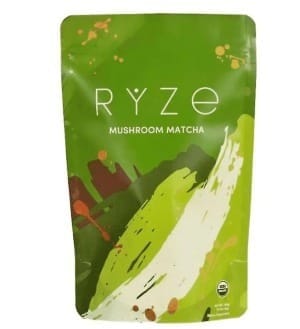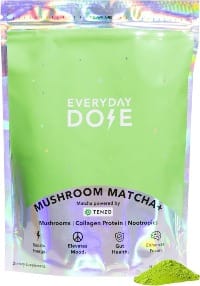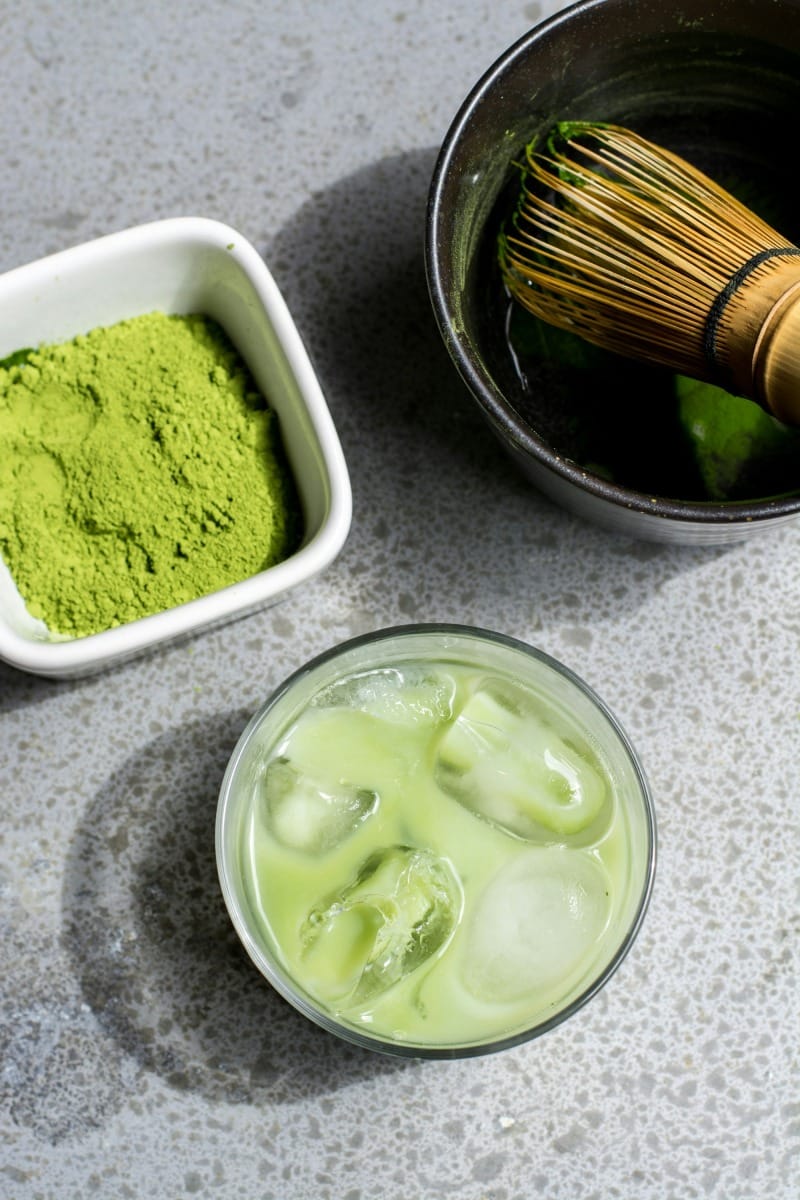In the ever-evolving world of wellness drinks, a new contender has emerged that's capturing the attention of health enthusiasts and biohackers alike: mushroom matcha. This innovative blend combines the centuries-old tradition of Japanese matcha with the purported cognitive benefits of medicinal mushrooms. But does this fusion truly deliver on its promises of enhanced focus, energy, and overall well-being? Let's dive into the science behind this trendy beverage and explore its potential benefits for longevity and cognitive health.

Key takeaways:
• Mushroom matcha combines green tea powder with adaptogenic mushrooms
• The blend may offer synergistic benefits for cognitive function and stress reduction
• Scientific evidence supporting mushroom matcha's effects is still limited
• Individual responses to the drink can vary, and more research is needed
Ryze mushroom matcha: A closer look at the blend
Ryze, one of the leading brands in the mushroom matcha market, has gained popularity for its unique formulation. Their blend combines ceremonial grade matcha with a variety of functional mushrooms, including lion's mane, cordyceps, and reishi. Each of these ingredients has been studied for its potential cognitive and health benefits.
Lion's mane mushroom, for instance, has shown promise in supporting nerve growth factor production, which could potentially benefit memory and cognitive function[1]. Cordyceps has been associated with improved exercise performance and energy levels. Reishi, known as the "mushroom of immortality" in traditional Chinese medicine, has demonstrated immunomodulatory and anti-inflammatory properties in some studies.
By combining these mushrooms with matcha, Ryze aims to create a synergistic effect that enhances the benefits of each component. However, it's important to note that while individual ingredients have shown promise in various studies, the specific combination used in Ryze's blend has not been extensively researched.

Matcha mushroom: Unpacking the potential benefits
The foundation of mushroom matcha blends is, of course, matcha itself. This finely ground green tea powder has been a staple of Japanese culture for centuries and has gained global popularity in recent years due to its unique flavor profile and potential health benefits.
Matcha is rich in catechins, particularly epigallocatechin gallate (EGCG), which has been studied for its antioxidant and anti-inflammatory properties[2]. Some research suggests that regular consumption of matcha may support cardiovascular health, boost metabolism, and even have neuroprotective effects[3].
When combined with adaptogenic mushrooms, the potential benefits of matcha could be amplified. Adaptogens are substances that may help the body better cope with stress and maintain homeostasis. The mushrooms used in most matcha blends fall into this category, potentially offering a complementary effect to matcha's natural caffeine and L-theanine content.
However, it's crucial to approach these claims with a critical eye. While individual components show promise, the specific interactions between matcha and various mushroom extracts in a single beverage have not been thoroughly studied in clinical settings.
Ryze mushroom matcha reviews: What are users saying?
Anecdotal evidence from Ryze mushroom matcha users suggests a range of experiences. Many report increased focus, sustained energy without the jitters often associated with coffee, and improved mood. Some users claim to experience better stress management and enhanced cognitive performance throughout the day.
One user review states, "I've been using Ryze for a month now, and I've noticed a significant improvement in my ability to concentrate at work. The energy boost is smooth and long-lasting, without the crash I used to get from coffee."
However, not all reviews are uniformly positive. Some users report mild digestive discomfort or a lack of noticeable effects. It's important to remember that individual responses to supplements can vary widely, and what works for one person may not work for another.
Additionally, the placebo effect cannot be discounted when evaluating user reviews. The expectation of cognitive enhancement and stress reduction could potentially influence perceived benefits.
The science behind mushroom matcha: What do we know?
While the individual components of mushroom matcha blends have been studied to varying degrees, research on the specific combination is limited. Most studies on functional mushrooms have been conducted in vitro or on animal models, with human trials being less common and often limited in scope.
A 2019 review of medicinal mushrooms in neurological disorders highlighted the potential neuroprotective and cognitive-enhancing effects of various mushroom species, including those commonly used in matcha blends[4]. However, the authors noted that more rigorous clinical trials are needed to confirm these effects in humans.
Similarly, while matcha has been associated with various health benefits, including improved attention and cognitive performance, most studies have focused on green tea in general rather than matcha specifically[5].
The lack of direct research on mushroom matcha blends makes it difficult to draw definitive conclusions about their efficacy. While the theoretical basis for potential benefits is sound, more targeted studies are needed to confirm these effects and determine optimal dosages and formulations.
Conclusion:
Mushroom matcha represents an intriguing intersection of traditional wisdom and modern nutritional science. While the individual components of these blends show promise for cognitive enhancement and stress reduction, the specific combination lacks robust scientific validation.
For those interested in exploring mushroom matcha, it's essential to approach it with realistic expectations. While some users report significant benefits, individual responses can vary. As with any supplement, it's advisable to consult with a healthcare professional before incorporating mushroom matcha into your routine, especially if you have pre-existing health conditions or are taking medications.
As research in this field continues to evolve, we may gain a clearer understanding of how mushroom matcha affects cognitive function and overall health. Until then, it remains an interesting option for those seeking natural ways to support their mental and physical well-being 🧘♀️🍵
Curious about the potential benefits of mushroom matcha? Stay tuned to Sanatorium for the latest updates on longevity science and cognitive enhancement research. Share your experiences with mushroom matcha in the comments below, and let's continue the conversation on innovative approaches to health and wellness.
References:
- https://www.ncbi.nlm.nih.gov/pmc/articles/PMC6982118/
- https://www.ncbi.nlm.nih.gov/pmc/articles/PMC5236007/
- https://www.ncbi.nlm.nih.gov/pmc/articles/PMC7000754/
- https://www.ncbi.nlm.nih.gov/pmc/articles/PMC6213777/
- https://www.ncbi.nlm.nih.gov/pmc/articles/PMC6836118/
- https://www.ncbi.nlm.nih.gov/pmc/articles/PMC6340372/
- https://www.ncbi.nlm.nih.gov/pmc/articles/PMC6213777/
Citations:
- https://www.ncbi.nlm.nih.gov/pmc/articles/PMC9792400/
- https://www.matchaconnection.com/ryze-superfood-mushroom-matcha-review-2024/
- https://www.ncbi.nlm.nih.gov/pmc/articles/PMC10384337/
- https://www.eatthismuch.com/calories/mushroom-matcha,4069619
- https://www.foodrepublic.com/1430686/mushrooms-matcha-lions-mane-reishi-trend/
- https://www.forbes.com/health/supplements/matcha-tea-health-benefits/














Member discussion